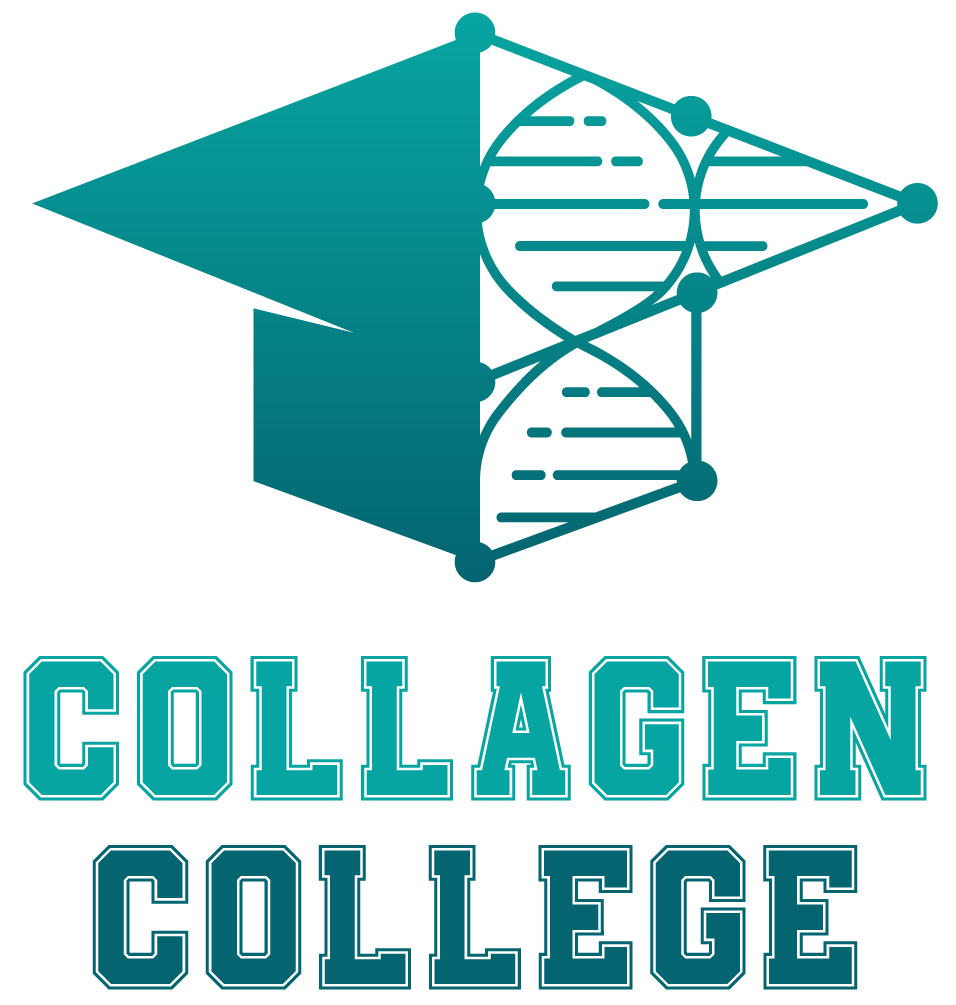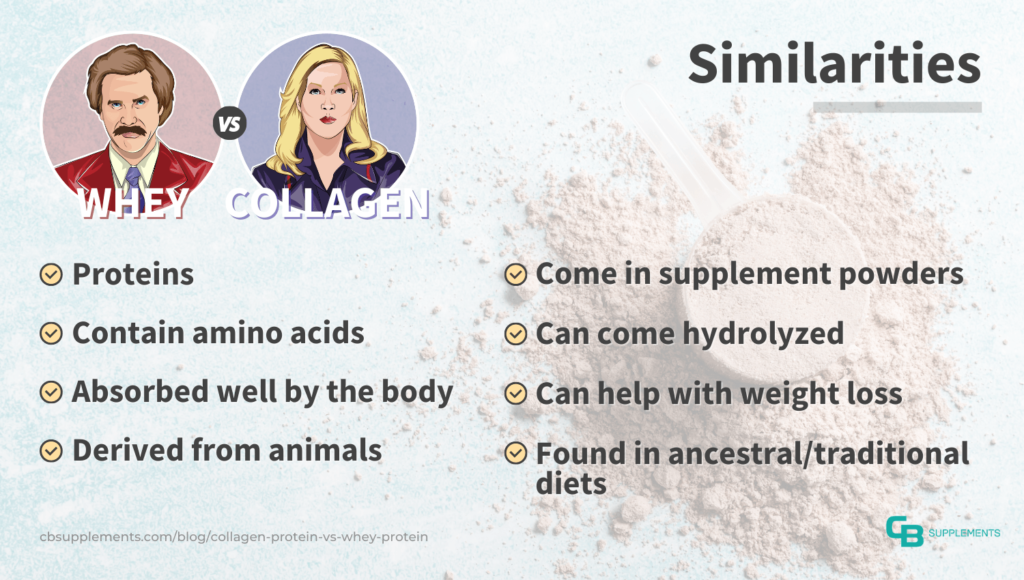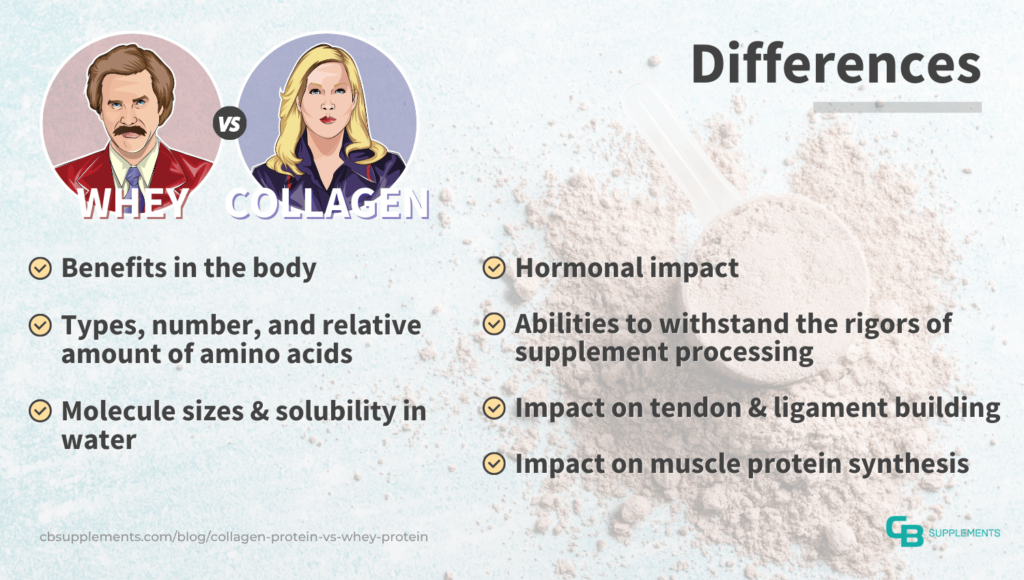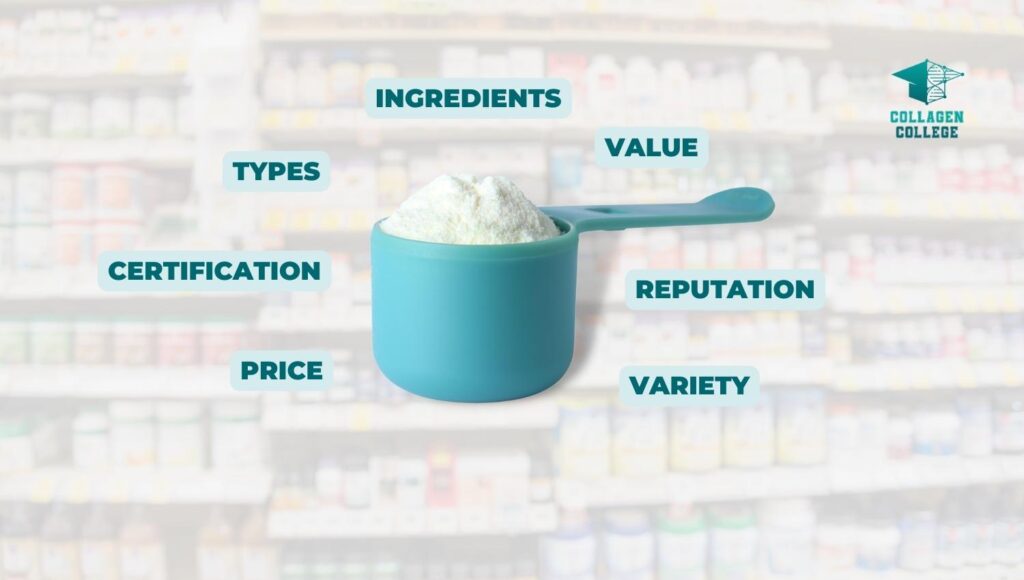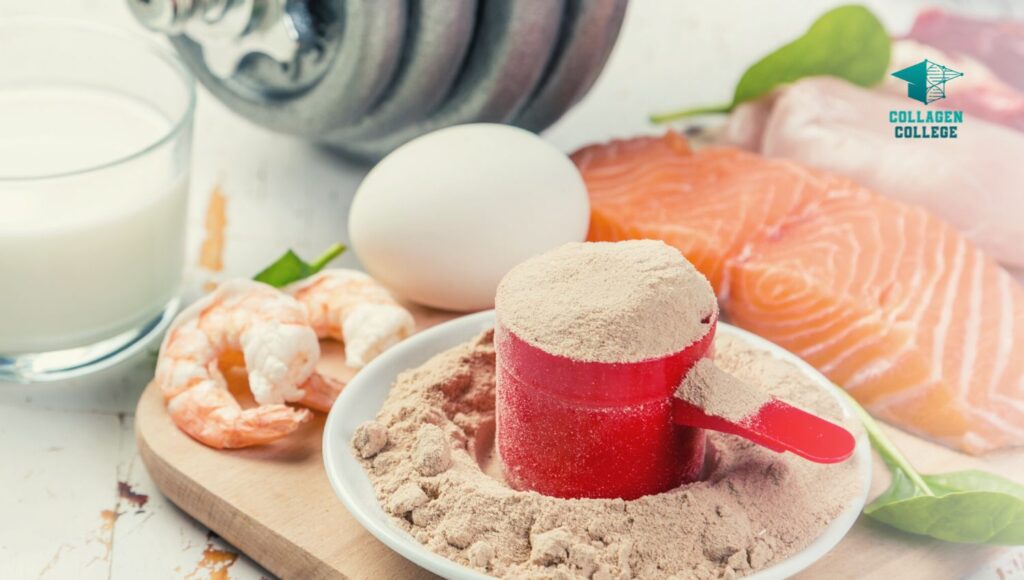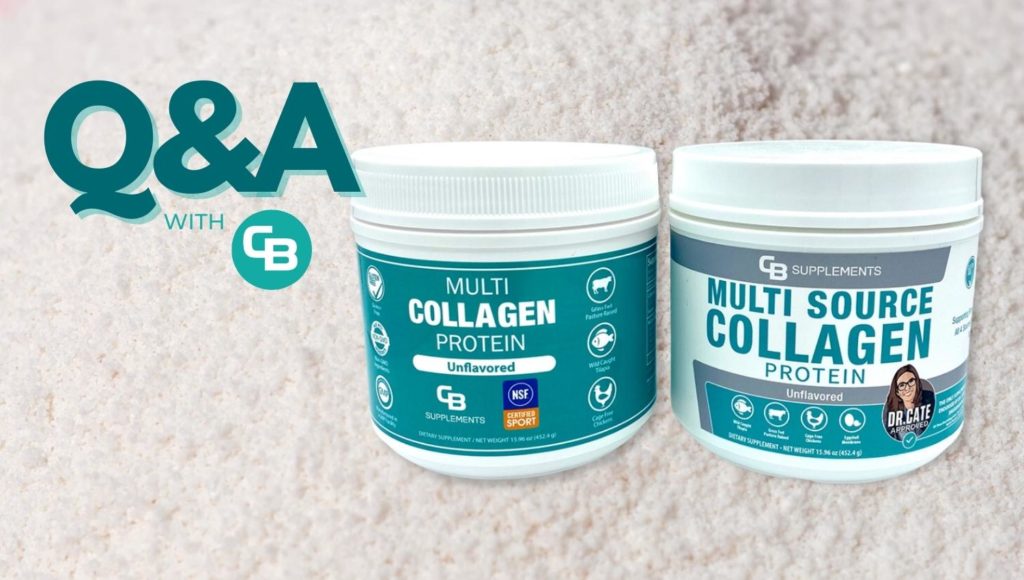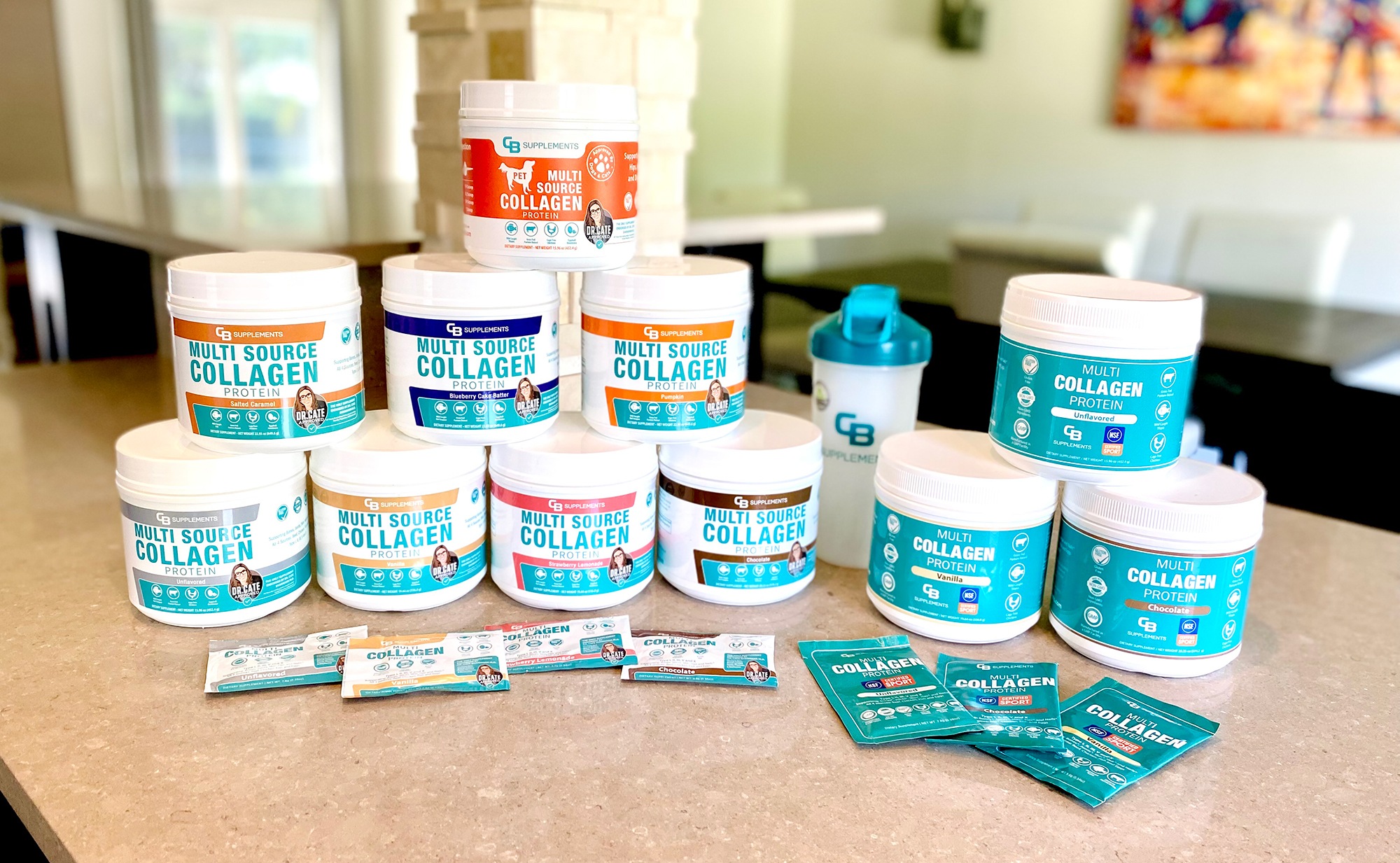We get this question often:
What’s the difference between collagen and whey?Current Whey Protein taker
And then it’s usually followed up with:
- I take whey protein, why do I need collagen too?
- If I take whey, should I stop and switch to collagen?
- If I take both will they, like, mess each other up?
We will answer those questions and more!
Whey protein has been commercialized since the 70s (it was actually discovered thousands of years ago — see this amazing article on the history of protein powder). We all know of whey, and because you’re reading this you’re probably taking whey currently. Whey’s benefits are well documented in nearly every science journal and fitness/nutrition blog known to man.
But, here comes collagen. The new supplement on the block. Yes, collagen is a protein. But, like, what kind of protein? Do we treat it the same as whey? Isn’t whey protein a do-it-all protein? Do we really need another supplement container sitting in our cabinet?
Oof.
I’m tired just writing those questions out. We’ll unpack all of this and more with the help of our in-house biochemist/nutritionist/M.D., Dr. Cate Shanahan.
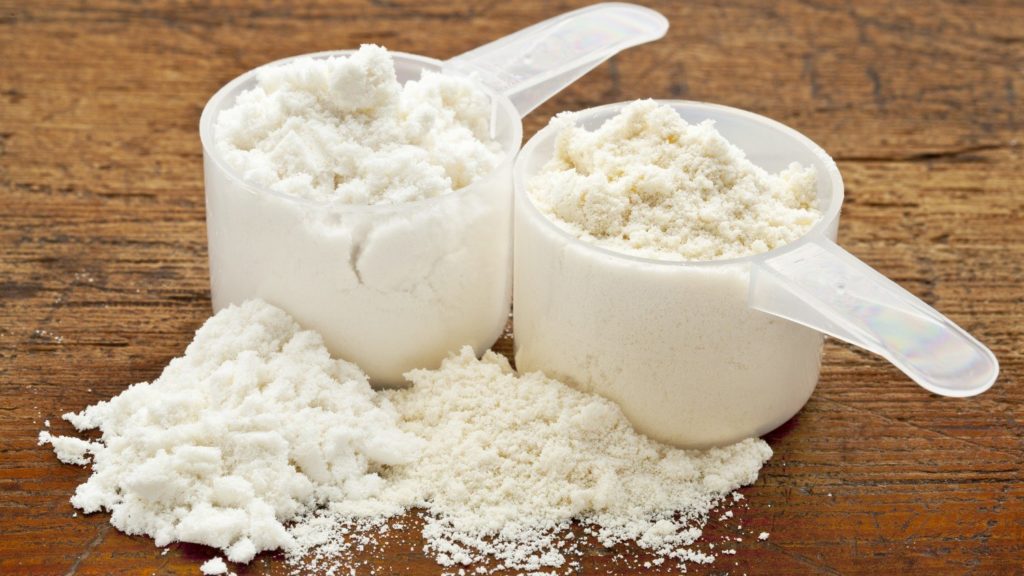
The Analogy explained: Burgundy (Whey) vs Corningstone (Collagen)
Ron and Veronica. They started as colleagues, turned enemies, and eventually discovered a beautiful relationship (yes, we realize we’re risking this whole analogy of whey vs collagen on the presumption that you’ve seen Anchorman!)
Ron is like Whey Protein.
He’s easily recognizable (like whey), been around for years (like whey), and carries a swagger (yes, a supplement can have swagger). Whey protein is the behemoth in supplements, it’s one of the most recognized terms in the supplement world. Ron Burgundy is also recognizable. I mean, come on, who hasn’t heard of Ron Burgundy?? I am pretty sure Will Ferrell wishes he could be Ron Burgundy in real life.
Veronica is like Collagen Protein.
Why are you being this way? Why can’t you just be proud of me as a peer and my gentleman lover? Veronica Corningstone
She’s new on the scene (like collagen), gaining hype by the day (collagen products are taking over the supplement aisle), and has a chip on her shoulder (collagen seeks independence from whey — because they are different).
Why the clash?
Most people are under the impression that whey protein and collagen protein are substitutes. Meaning, they only need to take one or the other. This is where unnecessary competitive friction begins.
Collagen (just like Corningstone) is not here to steal the show away from Whey (Burgundy). You see, many (including Ron) thought Veronica was hot-tailing in ready to take over the throne of supremacy. But, as we all know, that wasn’t her motivation. She brought in her uniqueness, ready to make a name for herself.
Spoiler alert: similar to how TV audiences needed Ron AND Veronica, your body needs Whey AND Collagen! They are a power duo. When together, they’re unstoppable. Jump ahead to our Summary & Final Verdict.
The Cleanest & Safest Multi Collagen in the World
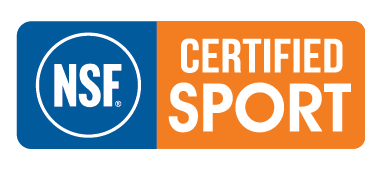
"I feel confident I am taking the best product and my joints thank me everyday!"
- Mike Freeman
Similarities of Collagen & Whey Protein
Here is our how collagen and whey are similar.
Both collagen and whey:
- are proteins
- contain amino acids
- are absorbed well by the body
- are derived from animals
- come in a supplement powder format
- can come hydrolyzed
- can help with weight loss
- found in numerous ancestral/traditional diets
Differences between Collagen & Whey
Here is how collagen and whey are different.
Collagen and whey have different:
- Benefits in the body
- Types, number, and relative amount of amino acids
- Molecule sizes & solubility in water
- Abilities to withstand the rigors of processing
- Impacts on tendon & ligament building
- Impacts on muscle protein synthesis
- Hormonal impact
Detailed Comparison
Hopefully, our quick comparison of collagen’s and whey’s similarities and differences has you wanting more. If you’ve learned everything you need to know, great! Thanks for stopping by.
For those interested in the nuances of this entire conversation — such as the science, nutrition, and chemistry differences of whey and collagen — we’ll compare whey vs collagen in these 7 ways:
- Sources
- How the Supplements are Made
- Benefits
- Chemistry
- Amino Acids
- Muscle Building
- Connective Tissue Building
After each topic, we’ll add a “Quick Review” to ensure you don’t miss anything. Now, let’s start with how whey and collagen are sourced.
1. Sources of Whey and Collagen
Understanding where, exactly, your supplement comes from should be important to you. You are putting this manufactured thing into your body, maybe lots of it, so maybe you should know this?
Though both whey and collagen come from animals, that’s where the similarities end with their sourcing.
Whey Protein Sources
You ate a whole wheel of cheese?!?! I’m not even angry. I’m actually quite impressed.Ron Burgundy (talking to Baxter)
There are two main proteins found in dairy, whey (~20%) and casein (~80%), according to NCBI). When Greek yogurt or cheese is made (mmm, cheese), milk proteins called caseins coagulate and leave behind whey. And, a byproduct of these yogurt and cheese-making processes, whey protein.
“A byproduct of the cheese-making process, whey protein provides substantial amounts of the essential amino acids that are needed to carry out the functions that proteins perform in the body”, says Mayo Clinic.
Collagen Protein Sources

Collagen protein is found in the skin, bone, joint material, and certain organs of any fish, fowl, or animal (yes, even dinosaurs). Collagen can even be extracted from the membrane of eggshells. If you’re looking to get more collagen from food, here are the only 4 foods rich in collagen.
It’s also important to remember the distinction between collagen vs collagen peptides. Collagen is simply the protein molecule, collagen peptides are the supplement.
2. How Collagen & Whey Supplements are Made
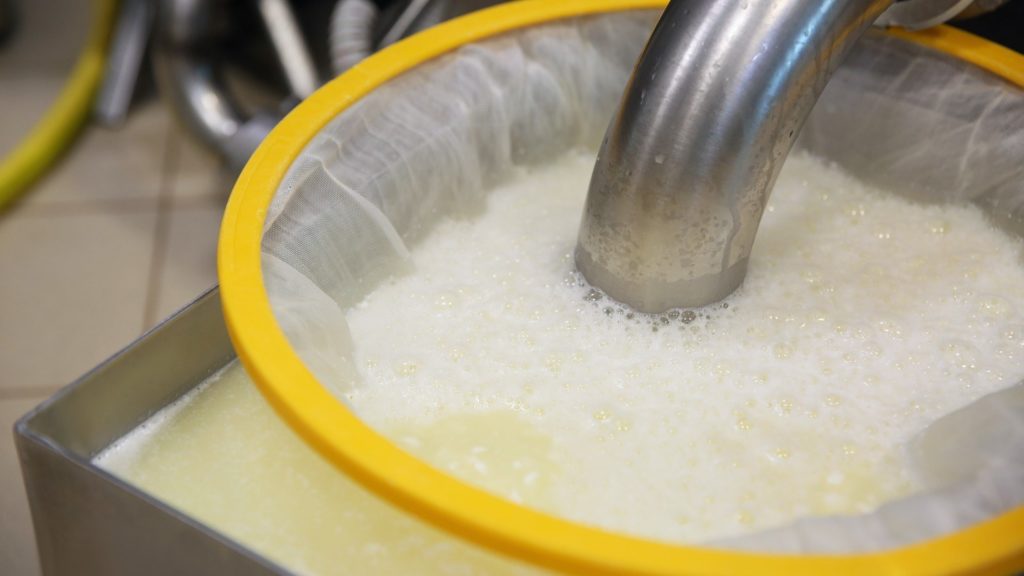
Who doesn’t want to see how the sausage is made? No, seriously, you should care about this as it’ll help you evaluate the best supplements on the market (and know what you’re actually putting into your body!)
Most supplement companies will follow the following “recipe” so to speak to create a whey or collagen supplement. Also, fun fact, did you know food converted into a powder is considered a “dietary supplement” by the FDA?
How Whey Protein Supplements are Made
- Fresh milk is collected & transported to a factory.
- The milk is separated into cheese and liquid whey.
- The whey is filtered to remove fat, carbohydrate, water, etc.
- Through a multi-step filtering and drying process, the whey is turned into powder.
How Collagen Protein Supplements are Made
Take a deep dive into what are collagen peptides made of & how they’re made.
Is collagen’s manufacturing process better than whey’s?
Knock, knock. Oh hello, Science. We need your help with this one.
Purely from a chemistry perspective, collagen protein’s manufacturing is less detrimental to the finished product’s quality than whey protein’s.
Both whey and collagen go through a dehydration and drying phase (as noted above), but the big difference is collagen’s molecules are (to put it plainly), tougher. They can withstand this end-to-end processing much better than whey because the integrity of the amino acids holds up to the battering of the manufacturing process.
Here’s the more scientific explanation from Dr. Cate:
Whey’s amino acid makeup is extremely unstable when heated and exposed to acid (which happens during the manufacturing process, especially of hydrolyzed whey protein).
She then goes on to say:
Amino acids become oxidized and glycated, meaning chemically mangled and fused to each other, which means not only are they no longer in the powder, they’re junk material that create more work for your kidney and liver–your body’s detoxifcation systems.
Furthermore, this scientific study shows that most Whey protein hydrolysate (WPH) products contain less (some as little as 20%!) of the BCAA they claim. Not just the BCAA, the concentrations of all of the essential amino acids were often way under what the labels promised.
Woah.
Not to drop a bomb here (but to drop a bomb cause we like to get people thinking), you’d probably be better off drinking a glass of milk than taking a whey protein supplement. Why? Cause milk doesn’t go through this degradation process and lose any BCAAs. The protein you see on the milk label is the actual amount of protein you’re getting, says the FDA.
In this case, milk is a GOOD CHOICE! 🥛
But, back to our topic here of whey vs collagen. Though we’re not trying to set up a competition here, Veronica (aka Collagen), you win this one.
3. Benefits of Collagen vs Whey
At the end of the day, it’s about benefits. Which, makes sense considering you’re taking a supplement with expectations of improved [fill-in-the-blank], right?
Here’s a general overview of the benefits of whey and collagen.
Whey’s Health Benefits
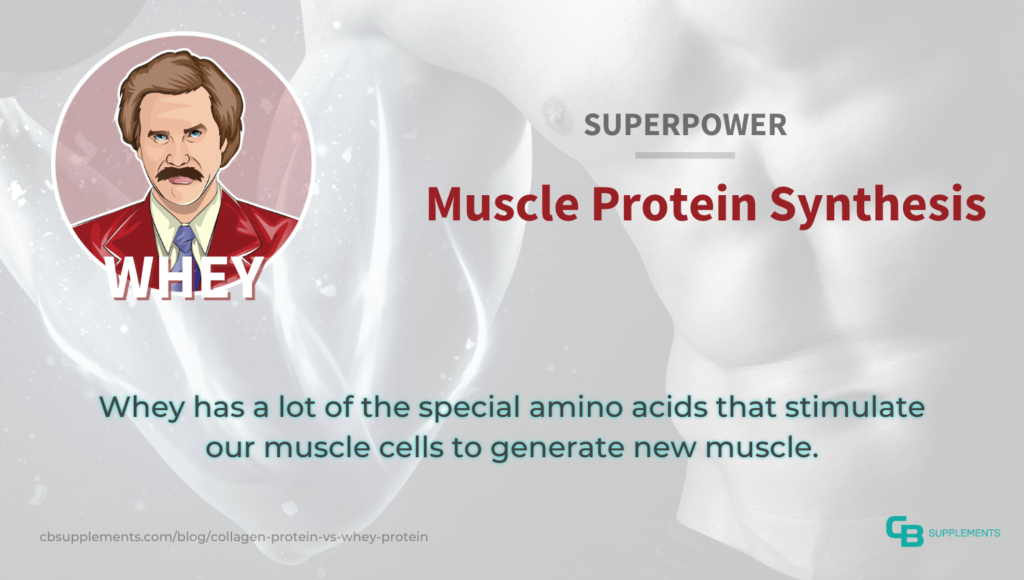
Per Healthline (which is the most accurate resource we’d stand behind), here are the real top benefits of whey protein:
- Promotes muscle growth
- Supports the reduction of inflammation
- Helps reduce hunger due to satiating qualities
- Can help you lose weight when used properly
Collagen’s Health Benefits
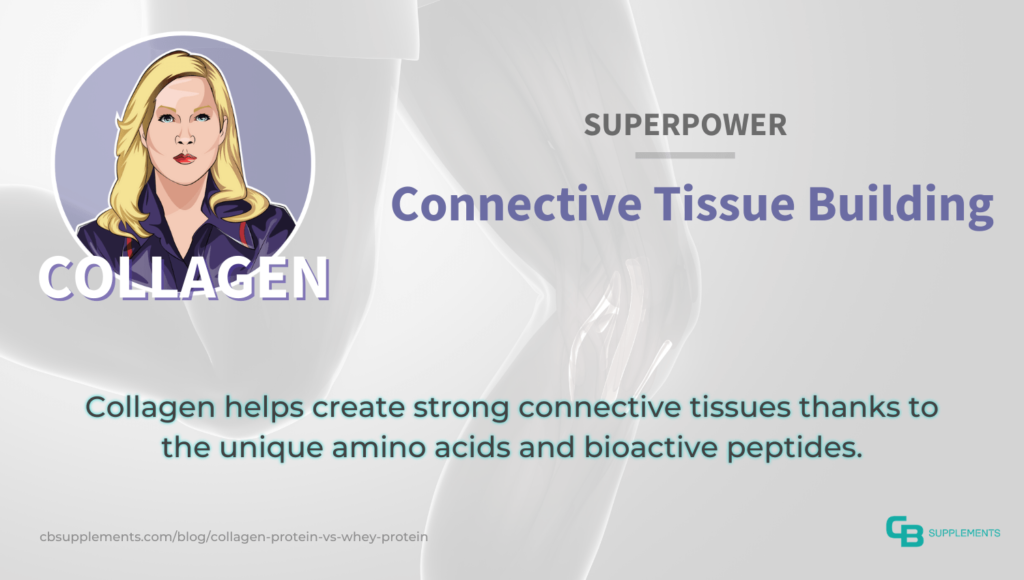
Rather than getting into all the wonderful benefits of collagen protein here, see our thorough Collagen Benefits resource instead. We dive into these 7 main benefits:
- Improves Hair, Skin, & Nails
- Help Tendons, Ligaments, & Joints
- Maintains Digestive Health
- Strengthens Bones
- Increase Muscle Mass & Lose Weight
- Promote Heart/Circulatory Health
- Helps Liver Detox Alcohol
Opposites attract?
As you can see from the two separate lists above, collagen and whey don’t have much crossover in the benefits they offer.
Just like…?
You got it. Ron and Veronica. Opposites attract, so they say.
Whey & Collagen’s impact on our Hormones
What’s the difference in hormonal impact? For you Keto folks that love Whey, we have bad news.
Whey protein stimulates insulin release far more than collagen protein because whey increases postprandial serum insulin levels due to its high content of leucine, isoleucine, valine, lysine, and threonine. Insulin promotes the growth of lean tissues like muscle and bone, but it also blocks fat burning and can drop your blood sugar making you hungry.
See: Does Collagen Break a Fast?
4. Chemistry of Collagen Protein and Whey Protein
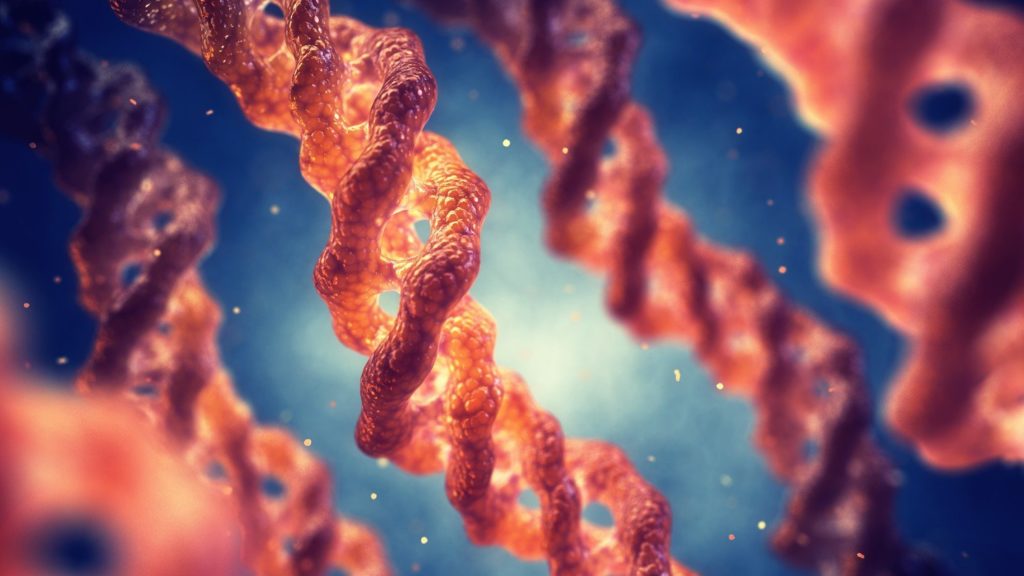
The chemistry of collagen and whey is really in the amino acids. But, before we get into breaking down the amino acid profiles of whey and collagen (which seems to be polarizing and there’s much to share) — let’s talk general chemistry. And more specifically, the molecules of whey and collagen.
Collagen Protein Molecule
Collagen protein is a complex and massive molecule that has to be broken down into smaller bits — this is where the term “hydrolyzed” comes from.
Why does collagen need to be hydrolyzed? Well, the most popular way of taking collagen powder is to stir into beverages (collagen & coffee anyone?) It’d be impossible to consume collagen powder without it being hydrolyzed. Beverage-friendly collagen protein only comes in hydrolysate (a substance produced by hydrolysis).
Whey Protein Molecule
Whey protein’s molecules are much smaller and do not require breaking down. That’s why beverage-friendly whey protein is sold as isolates, concentrates, and hydrolysates.
I know what you’re thinking. Why do supplement companies break whey down into hydroslates if it’s not required for easy consumption? Because supplements (like hydrolyzed whey protein) is the hypo-allergenic form of whey. Some folks are allergic to intact whey protein but it’s nearly impossible to be allergic to the broken down hydrolysates.
Hydrolyzed whey is like the hot, young cousin of whey protein. It comes from the same gene pool, containing the same amino acid and microfraction content, but the hydrolyzed version is smaller and faster.Mens Journal
5. Amino Acids of Whey & Collagen
This is where the whey vs collagen comparison gets spicy. Protein is comprised of 20 amino acids. 9 of them your body doesn’t produce, called essential amino acids.
- Whey protein is a complete protein because it contains 20 amino acids, including all 9 essential amino acids. It is, by definition, a complete protein source.
Can collagen claim the same? No.
- Collagen is not a complete protein because collagen contains 19 amino acids, including 8 essential amino acids (missing the essential amino acid, Tryptophan).
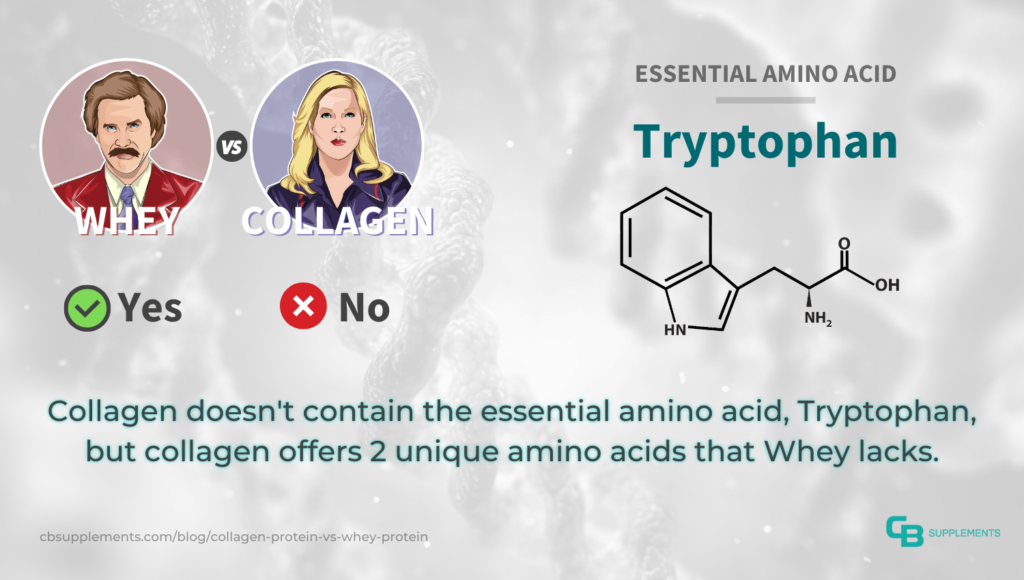
Here’s where things get interesting. Collagen protein contains 2 amino acids that whey protein lacks:
- Hydroxyproline
- Hydroxylysine
This is exactly where the comparison gets complicated and requires further exploration because collagen contains a different spectrum of amino acids.
If you’re truly interested in getting healthy, you’ll be interested to know that this way of talking about protein dates back to the 19th century, long before we understood very much about metabolism and before we had a clue about DNA and the role of amino acids in regulating growth at the genetic level.
In other words:
If all you look at when deciding to eat a given food is whether it’s amino acid profile contains the 9 our bodies can’t make, you’re hardly looking at the ‘complete’ story.Dr. Cate, M.D.
We touched on the basic chemistry (above), now let’s open the book and analyze the superpowers of both Whey (Muscle Building) and Collagen (Connective Tissue Building).
6. Muscle Building of Collagen vs Whey
“It’s a deep burn!”
This is Whey Protein’s superpower.
No, not curls.
Muscle protein synthesis.
Whey is pretty much synonymous with weights (I mean, they both even start with ‘W’). If you throw around iron, you better have a shaker and some whey protein powder standing by for that highly debated anabolic “window”. Regardless if you’re doing heavy curls (“It’s so deep!”) or wrestling your kids — and everything in-between — your body needs protein for recovery. The science on protein’s ability to speed muscle recovery and improve performance and strength is greatly documented. Remember, the question here isn’t if your body needs protein. It’s about how you go about getting that protein.
If you’re vegan, get plenty of high protein nuts, seeds, ancient grains, and legumes in your diet. If you’re not vegan, get high-quality protein from beef, eggs, poultry, and fish. We’ve always been consistent with the recommendation to get what you can out of food FIRST, then supplement.
If you’re looking to supplement (we all need to in today’s world) to build muscle, whey is your answer. Why? Three words: muscle protein synthesis. This is whey’s superpower.
Muscle protein synthesis is a naturally occurring process in which protein is produced to repair muscle damage caused by intense exercise. It is an opposing force to muscle protein breakdown (MPB) in which protein is lost as a result of exercise.VeryWellFit.com
As a refresher (“I’m Ron Burgundy?”), whey has all 20 amino acids (including the 9 essential).
Not only that, but whey also has a lot of the special amino acids that stimulate our muscle cells to generate new muscle. These amino acids can interact directly with DNA inside our cells to turn on segments required to build new muscle. In that sense, branched-chain amino acids can have a growth-hormone like effect.
Pretty cool, no?
If you ate only whey and no other source of protein, and an otherwise completely balanced diet, you’d get the basic amino acid building blocks you need to make all the proteins in your body. But if you want to optimize your body composition, you must eat ‘way’ different foods than whey.Dr. Cate, M.D.
7. Connective Tissue Building of Collagen vs Whey
This is collagen’s superpower.
Collagen protein is simply the best protein for addressing all that wonderful connective tissue around those muscles such as skin, ligaments, tendons, and even bones.
Remember, collagen has 19 amino acids (including 8 of the 9 essential) — offering 2 amino acids that whey lacks. These unique amino acids, plus Proline, work individually and as well as bound to other amino acids to form certain short peptides (2-3 amino acids strung together in a chain) to give collagen its rejuvenating magic.
It sure did, Ron.
When you think of these special amino acids and peptides, think genetic switch.
These special collagen-derived compounds are found nowhere else in the edible world and have a special bioactive property that renders them capable of generating powerful anabolic effects, very much like human growth hormone.Dr. Cate, M.D.
Bioactive collagen peptides and it’s unique amino acids have been shown to specifically rev up the collagen-making genes in specialized cells in our skin, ligaments, tendons, etc., called fibroblasts. This fibroblast-DNA activation is the superpower of collagen and the key to how we increase our collagen production.
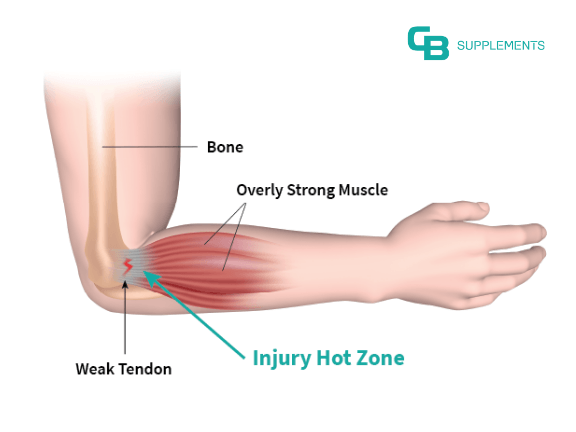
Collagen Protein vs Whey Protein FAQ
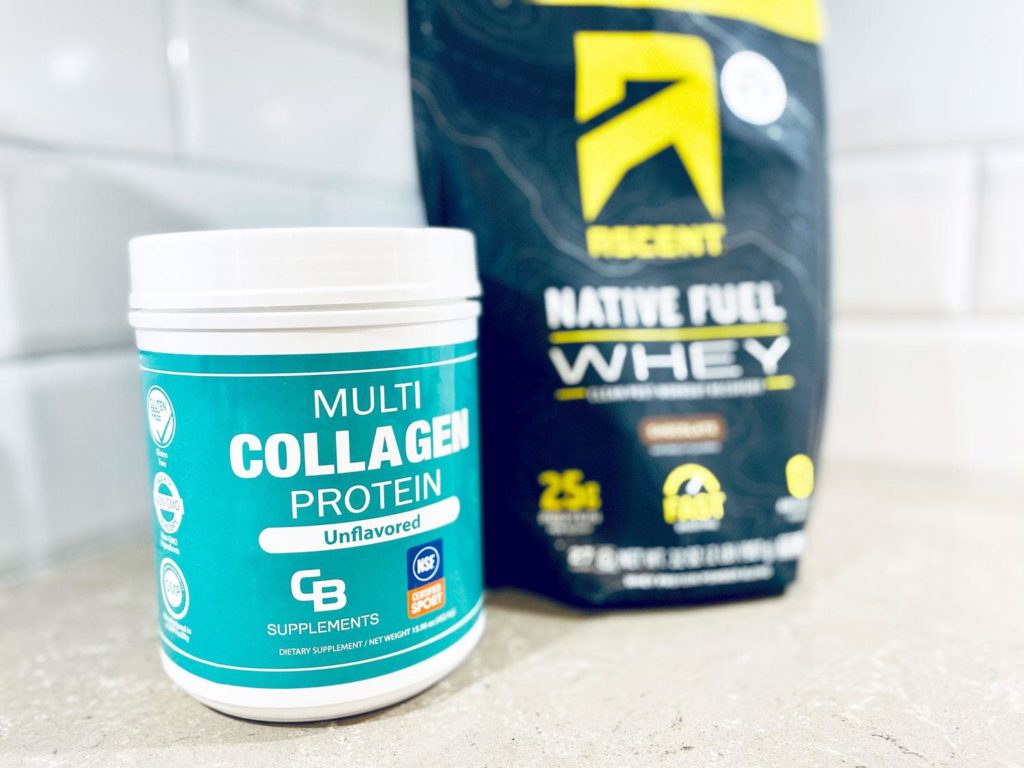
Here are some common questions around collagen vs whey (partially, and indirectly addressed above) that may also be helpful.
Yes, collagen peptides (or also called hydrolyzed collagen), are short chains of amino acids derived from collagen. Most collagen products (like our unflavored multi collagen power) will give you around 8 grams of protein per scoop.
Collagen powder is a protein powder, but it is different than a whey protein or plant-based protein because it's sourced differently, requires a different manufacturing process, and boasts different benefits.
Did Veronica replace Ron? No (well, maybe for a hot minute, but not long-term). See Summary & Final Verdict below.
Absolutely you can! In fact, if you combine collagen with a high-quality whey protein powder (we're big fans of Ascent), you may just have the healthiest drink known to man. Pro tip: don't mix flavors, choose an unflavored for one and then a flavored for the other!
Whey in itself does not contain collagen — they are radically different proteins.
Nearly all whey proteins will only contain whey, they do not add in collagen to the formula. Most supplements will separate them into different products.
Summary & Final Verdict
Burgundy: “You stay classy, San Diego.”
Corningstone: “And thanks for stopping by.”
Burgundy: “But, mainly stay classy.”
This was a critical moment during Anchorman. The feud between Ron and Veronica was near its peak. But, we all know how it ends.
Whey and Collagen are not in a feud. They’re besties (I really wanted to say lovers) and the world has yet to find out about this truly special duo.
If you focused just on your muscle protein synthesis (e.g. large and strong muscles), you could end up with an overly strong muscle(s) somewhere in your body. But, guess what gets neglected? Tendons. And joints. And bones. Guess what happens when you neglect your tendons, ligaments, and bones around that overly strong muscle?
Injury.
You want to be strong AND healthy, right? Right.
Collagen vs Whey? Not really. More like: Collagen + Whey.
Start thinking of them as the best duo, ever. Maybe even better than Ron and Veronica. Just maybe.
